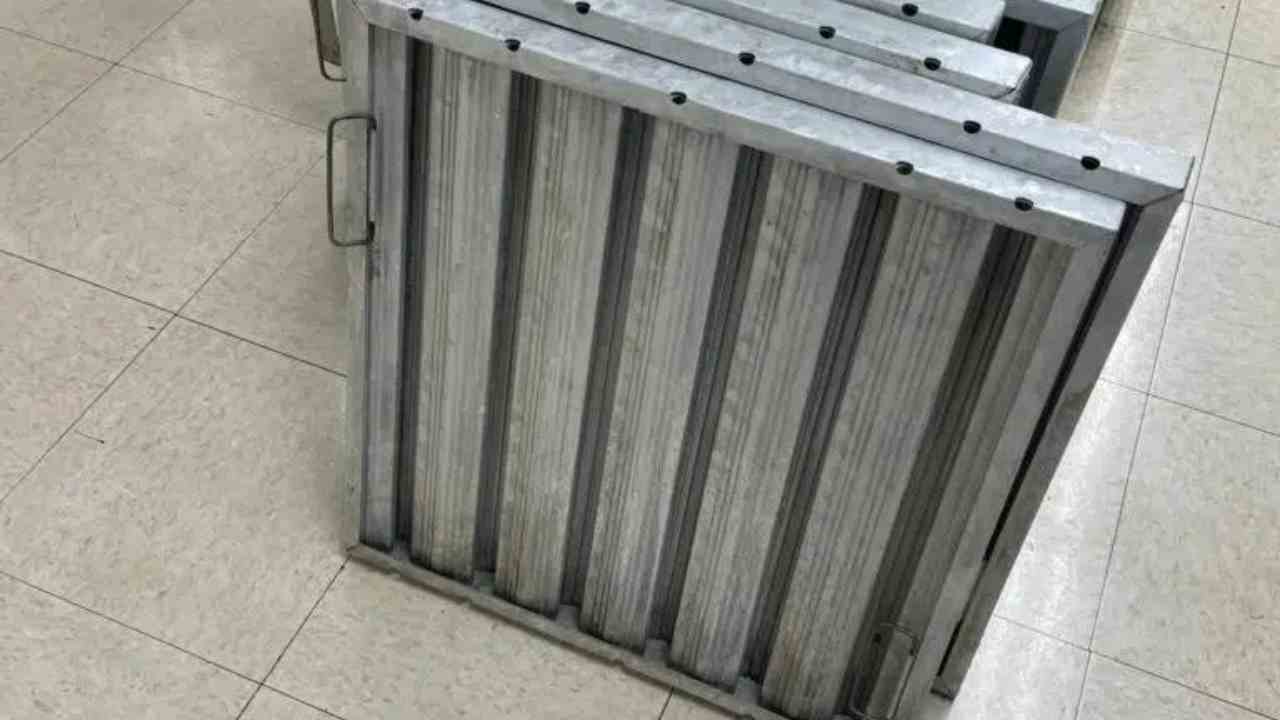Kitchen Air Quality and Filtration Systems

Ontario-wide Kitchen Exhaust and Hood Cleaning – Best prices and service guaranteed.
When it comes to maintaining a healthy home environment, many people overlook the importance of kitchen air quality. The kitchen is often a hub of activity, with cooking, cleaning, and other daily tasks generating a variety of pollutants and contaminants. These can have a significant impact on the air we breathe and our overall well-being. In this article, we will explore the importance of kitchen air quality and the role that filtration systems play in improving it.
The Impact of Poor Kitchen Air Quality
Poor kitchen air quality can have a range of negative effects on our health. The pollutants and contaminants commonly found in kitchens can exacerbate respiratory conditions such as asthma and allergies. They can also contribute to the development of respiratory infections and other respiratory diseases. Additionally, exposure to these pollutants over time can increase the risk of developing chronic health conditions such as heart disease and lung cancer.
One of the main culprits of poor kitchen air quality is cooking. When we cook, especially at high temperatures, a variety of pollutants are released into the air. These include volatile organic compounds (VOCs), particulate matter, and carbon monoxide. VOCs are chemicals that can be found in many household products, such as cleaning agents, paints, and cooking oils. When these chemicals are heated, they can evaporate and become airborne, leading to poor indoor air quality.
In addition to cooking, other activities in the kitchen can also contribute to poor air quality. Cleaning products, especially those containing harsh chemicals, can release harmful fumes into the air. Poor ventilation and inadequate air circulation can further exacerbate the problem by trapping these pollutants indoors.
Ontario-wide Kitchen Exhaust and Hood Cleaning – Best prices and service guaranteed.
The Role of Filtration Systems
Filtration systems are an effective way to improve kitchen air quality by removing pollutants and contaminants from the air. These systems work by capturing and trapping particles as air passes through them, preventing them from being released back into the environment. There are several types of filtration systems available, each with its own advantages and limitations.
1. Mechanical Filters
Mechanical filters, also known as particulate filters, are the most common type of filtration system used in kitchens. These filters are designed to capture and remove particles from the air, such as dust, pollen, and smoke. They are typically made of a fibrous material that allows air to pass through while trapping the particles. Mechanical filters are highly effective at removing larger particles but may not be as effective at capturing smaller particles.
One popular type of mechanical filter is the High-Efficiency Particulate Air (HEPA) filter. HEPA filters are capable of capturing particles as small as 0.3 microns with an efficiency of 99.97%. They are often used in air purifiers and can be a valuable addition to a kitchen filtration system.
Ontario-wide Kitchen Exhaust and Hood Cleaning – Best prices and service guaranteed.
2. Activated Carbon Filters
Activated carbon filters are another type of filtration system commonly used in kitchens. These filters are designed to remove odors, gases, and chemicals from the air. Activated carbon is a highly porous material that can absorb a wide range of pollutants, including VOCs and cooking odors. These filters are particularly effective at removing odors and can significantly improve the smell of the kitchen.
However, it is important to note that activated carbon filters are not as effective at removing particulate matter as mechanical filters. Therefore, a combination of both types of filters may be necessary to achieve optimal air quality in the kitchen.
3. Electrostatic Precipitators
Electrostatic precipitators are a more advanced type of filtration system that uses an electrostatic charge to capture and remove particles from the air. These filters work by charging the particles as they pass through an ionization section. The charged particles are then attracted to oppositely charged plates, where they are collected and removed from the air.
Electrostatic precipitators are highly effective at removing both large and small particles from the air, making them a good choice for kitchens where cooking generates a significant amount of particulate matter. However, these filters require regular cleaning to maintain their effectiveness, as the collected particles can build up over time.
Ontario-wide Kitchen Exhaust and Hood Cleaning – Best prices and service guaranteed.
The Benefits of Kitchen Air Filtration Systems
Investing in a kitchen air filtration system can provide a range of benefits for both your health and the overall comfort of your home. Here are some key advantages:
- Improved Indoor Air Quality: Filtration systems effectively remove pollutants and contaminants from the air, resulting in cleaner and healthier indoor air.
- Reduced Health Risks: By removing harmful particles and chemicals from the air, filtration systems can help reduce the risk of respiratory conditions, allergies, and other health issues.
- Elimination of Odors: Activated carbon filters are particularly effective at removing cooking odors, making the kitchen a more pleasant space to be in.
- Enhanced Comfort: Clean air can contribute to a more comfortable living environment, reducing symptoms such as coughing, sneezing, and eye irritation.
- Protection of Appliances: Airborne particles can settle on kitchen appliances, causing them to become dirty and potentially affecting their performance. Filtration systems can help prevent this buildup and extend the lifespan of your appliances.
-
Ontario-wide Kitchen Exhaust and Hood Cleaning – Best prices and service guaranteed.
Case Study: The Impact of a Kitchen Filtration System
To illustrate the benefits of a kitchen air filtration system, let’s consider a case study conducted in a residential kitchen. The study involved installing a combination of mechanical and activated carbon filters in the kitchen ventilation system.
Before the installation of the filtration system, the kitchen air quality was found to have high levels of particulate matter and cooking odors. The residents reported experiencing frequent coughing, sneezing, and eye irritation while cooking. Additionally, the kitchen often had a lingering smell of cooking even hours after the meal was prepared.
After the installation of the filtration system, the air quality in the kitchen significantly improved. The mechanical filters effectively captured and removed the majority of the particulate matter, resulting in cleaner air. The activated carbon filters successfully eliminated cooking odors, leaving the kitchen smelling fresh and clean.
The residents reported a noticeable reduction in respiratory symptoms and an overall improvement in their well-being. They also found that the kitchen was a more pleasant space to cook and spend time in, thanks to the elimination of cooking odors.
Ontario-wide Kitchen Exhaust and Hood Cleaning – Best prices and service guaranteed.
Kitchen air quality is an often overlooked aspect of maintaining a healthy home environment. Poor air quality in the kitchen can have a range of negative effects on our health, from exacerbating respiratory conditions to increasing the risk of chronic diseases. Filtration systems play a crucial role in improving kitchen air quality by removing pollutants and contaminants from the air.
There are several types of filtration systems available, each with its own advantages and limitations. Mechanical filters are effective at capturing larger particles, while activated carbon filters are excellent at removing odors and chemicals. Electrostatic precipitators offer advanced particle removal capabilities but require regular cleaning.
Investing in a kitchen air filtration system can provide numerous benefits, including improved indoor air quality, reduced health risks, elimination of odors, enhanced comfort, and protection of appliances. Case studies have shown that the installation of filtration systems can lead to significant improvements in air quality and overall well-being.
By prioritizing kitchen air quality and investing in the right filtration system, we can create a healthier and more enjoyable environment for ourselves and our families.
Learn more about “Ventilation Cleaning Solutions” on this page.
Frequently asked questions about Kitchen Air Quality and Filtration Systems.

Why is air quality and filtration important in a kitchen setting?
The quality of air in a kitchen, particularly in a commercial kitchen, is paramount for a variety of reasons. First, the kitchen environment naturally produces a range of airborne contaminants such as smoke, steam, odors, and particulates from cooking processes. Over time, these can accumulate and lead to poor air quality.
Poor air quality in a kitchen can affect the health and comfort of the staff and customers, leading to respiratory issues, allergies, or other health problems. It can also negatively impact the efficiency and lifespan of kitchen equipment by causing build-up and potential fire hazards. Therefore, air filtration systems are vital to ensure clean, safe, and efficient kitchen operations.
What types of kitchen air filtration systems are available and how do they work?
There are several types of air filtration systems for kitchens, and each works in a different way to clean the air:
Exhaust Hood Filters: These are the first line of defense in a kitchen air filtration system. They trap grease particles that are carried up into the hood during cooking, preventing them from entering the ductwork.
Electrostatic Precipitators (ESPs): These systems use an electrical charge to collect airborne particles. As the polluted air passes through the ESP, particles are charged and then collected on a series of plates.
Activated Carbon Filters: These filters are especially effective at removing odors from kitchen exhaust. They work by adsorbing odor molecules onto the surface of the activated carbon.
HEPA Filters: High Efficiency Particulate Air (HEPA) filters are able to trap a large amount of very small particles that other air filters may miss.
The choice of filtration system depends on the specifics of the kitchen’s operations, including the volume and type of cooking, local regulations, and available space and infrastructure.
How often should kitchen air filtration systems be maintained or replaced?
The maintenance frequency for kitchen air filtration systems depends on the type of system and the volume of cooking. As a general guideline, exhaust hood filters should be cleaned every week for heavy use or every 2-3 weeks for lighter use.
Systems like ESPs may need regular checks for electrical components, while activated carbon filters need replacement once the carbon becomes saturated.
Ultimately, the system manufacturer’s guidelines should be followed for cleaning and maintenance, but a professional can provide personalized advice based on your kitchen’s specific needs.
How do kitchen air filtration systems improve the overall working environment?
Kitchen air filtration systems significantly enhance the working environment in several ways. By filtering out smoke, grease, steam, and odors, they improve the air quality, leading to a healthier and more comfortable working atmosphere for kitchen staff.
Good air quality can boost staff productivity and morale and reduce health-related absences. Additionally, these systems help maintain a cleaner kitchen, reducing the time and effort required for cleaning accumulated grease and grime on surfaces. They also help to mitigate fire risks associated with the buildup of flammable grease.
Are there any laws or regulations related to kitchen air filtration systems?
Yes, kitchen air filtration systems are often subject to local codes and regulations, particularly in commercial settings. These laws are designed to protect the safety and health of both staff and patrons and to reduce the risk of fire. For instance, regulations may stipulate the type of filtration system required based on the volume and type of cooking, the minimum performance standards for these systems, and how often they should be cleaned or maintained.
Failure to comply with these regulations can result in penalties, including fines or closure of the establishment, and could also impact insurance coverage. Therefore, it’s crucial to consult with a local regulatory authority or a professional in kitchen ventilation and filtration to ensure your kitchen is compliant.
- hood cleaning
- Kitchen Air Quality and Filtration Systems
- kitchen exhaust cleaning
- restaurant hood cleaning







